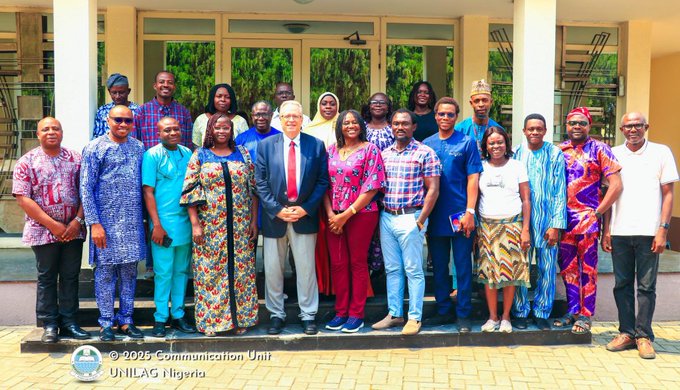UNILAG to Unveil Document on Ethical AI Policy
The University of Lagos (UNILAG) management has announced plans to unveil a policy document on the ethical use of artificial intelligence (AI) in academic activities. The initiative aims to “enhance critical thinking rather than foster plagiarism and academic indolence.”
This was said during the start of a three-day workshop on ethics in higher education by Prof. Bola Oboh, the institution’s Deputy Vice-Chancellor (Academics and Research).
UNILAG Hosts Higher Education Ethics – Proactive Ethics Program (PEP) By Fulbright Specialist and Deputy Ethics Officer from the Texas A&M University, Central Texas, USA, Professor Russell Porter.
Click here https://t.co/6GDsll4M05 to read more pic.twitter.com/mYfvXTN8D2
— University of Lagos (@UnilagNigeria) January 29, 2025
The Office of International Relations, Partnerships, and Prospects (IRPP) of the University of Lagos organised the “Intensive Training Workshop on Higher Education Ethics,” which was led by Prof. Russell Porter, a Fulbright Specialist Awardee and Deputy Ethics Officer at Texas A&M University, Central Texas, USA.
In the field of tertiary education, the vice chancellor stressed the value of training. In interviews with reporters, she emphasised the university’s dedication to upholding moral principles, noting that continuous efforts are being made to create policy papers that address moral dilemmas surrounding the use of artificial intelligence (AI) in academic settings.
The deputy vice chancellor stated that while the use of AI in academia is unavoidable, educational institutions everywhere must make sure that the technologies only enhance users’ intellectual capacities and do not compromise high academic standards.
“If we say no to AI, we will just be deceiving ourselves. So, we have already started developing policies in that area as a university. In the next one or two months, I’m sure the policy will be finally taken to the Senate for consideration.
“Whether we like it or not, our students are already using it, and some lecturers are also using it to check for plagiarism works.
“So we have made the student realise that while they can use AI, the idea of being able to think critically, using their thoughts and mind, should not be thrown away.
“It is when you just pick things up online and dump them as received that it becomes a serious ethical problem.”
Ensuring that the adoption of the AI policy will enhance critical thinking, rather than encouraging plagiarism and laziness among staff and students, Babatunde Sawyer, the Research Lead of the Machine Intelligence Research Group (MIRG) at UNILAG, addressed participants on AI’s accountability, validity, reliability, explainability, security, and privacy.
Sawyer, who holds a PhD and lectures in the Department of Computer Science, spoke at a workshop held at the Arthur Mbanefo Digital Research Centre (AMDRC) of UNILAG.
The event aimed to enhance faculty members’ knowledge of proactive ethics and instill standards for excellent service delivery.
The workshop, part of Porter’s scholarship award’s expected outcomes, showcased the Proactive Ethics Programme (PEP) developed by the scholar through his research.
The PEP initiative seeks to equip administrative and academic staff with the necessary knowledge and frameworks to address ethical issues in higher education.
In addition to emphasising the necessity of adopting “preventive measures rather than reactive responses to ethical challenges,” the scholar pointed out that the ethics framework may be tailored to Nigerian universities’ local settings while maintaining adherence to international best practices.
THE GUARDIAN/Chidimma Gold


Comments are closed.